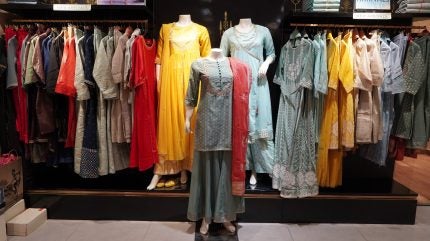
India’s new projects which are supported by a Rs855m ($9m) EU grant, are designed to promote inclusive growth, resource efficiency, and sustainability within India’s textile industry, while also enhancing livelihoods and empowering women economically.
The collaborative ventures will unfold across nine Indian states, namely Assam, Andhra Pradesh, Telangana, Uttarakhand, Uttar Pradesh, Odisha, Jharkhand, Bihar, and Haryana.
The initiatives will focus on a variety of products including natural dyes, bamboo crafts, handlooms, shawls, traditional handicrafts and textiles with plans to improve production processes, branding strategies, and market access.
The central objectives of all the projects are to enhance income opportunities for women and encourage collaboration between artists, producers, civil society organisations (CSOs), government institutions, and market stakeholders.
Each project will integrate environmental considerations by minimising negative impacts on nature while promoting circularity and resource efficiency.
It is hoped that 35,000 individuals will directly benefit from the projects over the next three to five years.

US Tariffs are shifting - will you react or anticipate?
Don’t let policy changes catch you off guard. Stay proactive with real-time data and expert analysis.
By GlobalDataThis includes support for 15,000 micro, small and medium enterprises (MSMEs), 5,000 artisans, and 15,000 farmer-producers.
The projects are expected to improve the economy of local communities and industries, particularly empowering approximately 200,000 women.
The Indian textile and apparel sector employs over 45m people — 60% of whom are women — and faces challenges such as emissions, energy consumption, water usage, and low recycling levels.
This collaboration continues the EU’s partnership with India on sustainability and circular economy principles and supports the Ministry of Textiles’ “Sustainable Bharat Mission for Textiles.”
The funding is part of the EU’s Global Gateway Strategy and complements the EU-India Resource Efficiency Circular Economy initiative.
This initiative is co-funded by Germany’s Federal Ministry (BMUV), executed in tandem with India’s Ministry of Environment, Forest, and Climate Change, and implemented by GIZ.
The projects will be executed through collaborations between government agencies and private sector partners. They are crafted to preserve India’s cultural heritage in textiles while fostering economic self-reliance through innovation, competitiveness, and improved market linkages.
A Textiles’ Toolkit has also launched to encourage Circular Economy and Resource Efficiency in the sector and it was developed in partnership with GIZ.
The EU delegation to India cooperation head and minister counsellor Franck Viault said: “While fast fashion dominates global trends, both the EU and India have been making serious effort to make the textile industry more sustainable. India’s rich textile heritage is internationally acclaimed, particularly in Europe.
“By merging tradition with innovation and technology, India’s textile sector can leapfrog into a sustainable future. As a key partner, the EU is committed to supporting India’s circular economy agenda, sharing best practices, and promoting environmentally sustainable practices in this vital sector.”
The seven projects will be managed by various organisations including Humana People to People India, Deutsche Welthungerhilfe EV, Stiftelsen Varldsnaturfonden WWF, Professional Assistance for Development Action, Network for Enterprise Enhancement and Development Support, Foundation for MSME Clusters, and Intellecap Advisory Services.
Organisers of Bharat Tex 2025 predicted that by 2030, India’s textile industry could grow to a value of $350bn and potentially create 35m new job opportunities.



